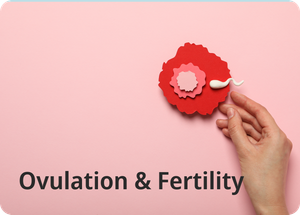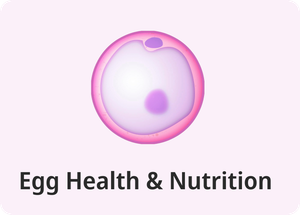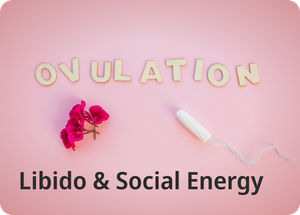Premenstrual Syndrome (PMS) is an experience that affects nearly 3 out of 4 menstruating women. While physical symptoms such as bloating, headaches, and breast tenderness are widely recognized, the emotional impact of PMS often feels more challenging to navigate. One of the most common emotional symptoms is irritability, a sudden rise in frustration, short temper, or hypersensitivity to small triggers.
Irritability during PMS is not simply “bad mood” or a lack of patience. It has a strong biological basis, influenced by changes in estrogen and progesterone, which affect neurotransmitters like serotonin. For some women, this irritability disrupts work, relationships, and overall quality of life. The good news is that with awareness and practical coping strategies, it is possible to manage irritability and ease this phase of the cycle.
In the luteal phase (after ovulation and before menstruation), progesterone levels rise and then drop if pregnancy does not occur. This fluctuation affects serotonin, the brain chemical responsible for mood regulation. Lower serotonin can make women more prone to irritability, anxiety, or sadness.
The premenstrual phase increases sensitivity to everyday stressors. A minor inconvenience like traffic, a messy room, or a delayed response may trigger a disproportionately strong emotional reaction.
Many women experience poor sleep quality or insomnia in the days before their period. Sleep deprivation worsens mood swings, frustration, and the ability to cope with stress.
Cramps, bloating, or fatigue can contribute to feeling easily annoyed. When the body feels uncomfortable, tolerance levels naturally decline.
Recognizing irritability as a PMS symptom is the first step toward managing it. Signs include:
If these symptoms are intense enough to interfere with daily functioning, they may indicate Premenstrual Dysphoric Disorder (PMDD), a more severe condition that requires medical attention.
Food has a direct impact on mood. To reduce irritability:
Even light to moderate exercise releases endorphins, natural mood boosters. Activities like walking, yoga, swimming, or cycling reduce stress and help regulate emotions.
Prioritizing sleep is crucial. Aiming for 7–9 hours of quality sleep supports emotional regulation. Good habits include limiting screen time before bed, keeping a regular schedule, and creating a calming night routine.
Slow, mindful breathing lowers stress hormones. Try inhaling for 4 counts, holding for 4 counts, and exhaling for 6–7 counts to calm the nervous system.
Practicing meditation helps in observing irritability without immediately reacting to it. Even 10 minutes of mindfulness can create a buffer between stimulus and response.
This technique involves tensing and relaxing muscle groups to release tension. It can be especially helpful when irritability feels linked to physical discomfort.
Writing down thoughts and emotions provides an outlet and makes patterns visible. Identifying triggers helps in preparing for them in the next cycle.
Letting family or partners know that irritability is linked to PMS can foster understanding. A simple, “I’m feeling irritable today, it’s probably PMS please bear with me” can prevent conflicts.
Engaging in painting, music, or writing provides a healthy release for emotional intensity.
Reducing noise, clutter, or overwhelming tasks can minimize irritability triggers. Soft lighting, soothing music, or aromatherapy (lavender, chamomile) create a calming atmosphere.
Avoid scheduling stressful or high-pressure activities during the luteal phase if possible. Planning lighter workloads can reduce frustration.
Remind yourself that irritability is not a personal flaw but a temporary symptom. Treat yourself with the same kindness you would offer a friend.
While PMS irritability is common, sometimes it becomes overwhelming. Medical guidance is recommended if:
Treatment options may include:
Developing strategies to handle irritability does more than ease PMS, it strengthens overall emotional resilience. Women often report that mindfulness, healthy routines, and open communication benefit their entire month, not just premenstrual days. Over time, these habits create greater emotional stability, healthier relationships, and improved self-awareness.
Irritability during PMS is a common, biologically driven experience that affects many women in varying degrees. It is not a sign of weakness or poor self-control but a reflection of hormonal and neurochemical changes in the body. By combining lifestyle adjustments, mind-body practices, emotional expression, and supportive relationships, women can ease irritability and regain balance.
Most importantly, recognizing that this irritability is temporary allows women to approach themselves with patience and self-compassion. With awareness and care, PMS can shift from being an overwhelming burden to a manageable part of the monthly cycle.
About PeriodSakhi
PeriodSakhi is your trusted companion for understanding your menstrual health. With easy-to-use tools, it helps you track your periods, ovulation, fertility, moods, and symptoms, while providing insights into your overall reproductive and hormonal health. PeriodSakhi also serves as a supportive online community where women can share experiences, find reliable information, and access expert-backed guidance on menstrual health, PCOS, pregnancy, lifestyle, and more.
Disclaimer
The views, thoughts, and opinions expressed in this article/blog are solely those of the author and do not necessarily reflect the views of PeriodSakhi. Any omissions, errors, or inaccuracies are the responsibility of the author. PeriodSakhi assumes no liability or responsibility for any content presented. Always consult a qualified medical professional for specific advice related to menstrual health, fertility, pregnancy, or related conditions.
Start the conversation
No comments yet. Start the conversation by leaving the first comment!




